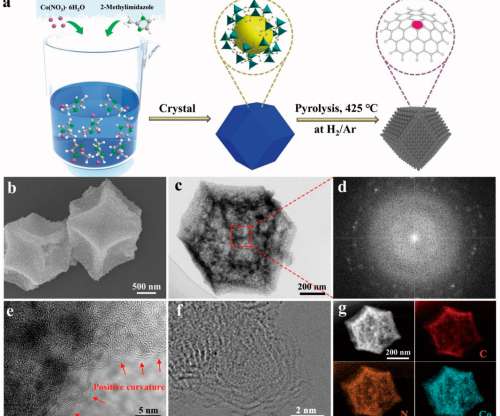University of Sydney team advances rechargeable zinc-air batteries with bimetallic oxide–graphene hybrid electrocatalyst
Green Car Congress
AUGUST 16, 2017
University of Sydney team advances rechargeable zinc-air batteries with bimetallic oxide–graphene hybrid electrocatalyst. Up until now, rechargeable zinc-air batteries have been made with expensive precious metal catalysts, such as platinum and iridium oxide. —Wei et al. Resources. Karahan, S. doi: 10.1002/adma.201701410.




































Let's personalize your content